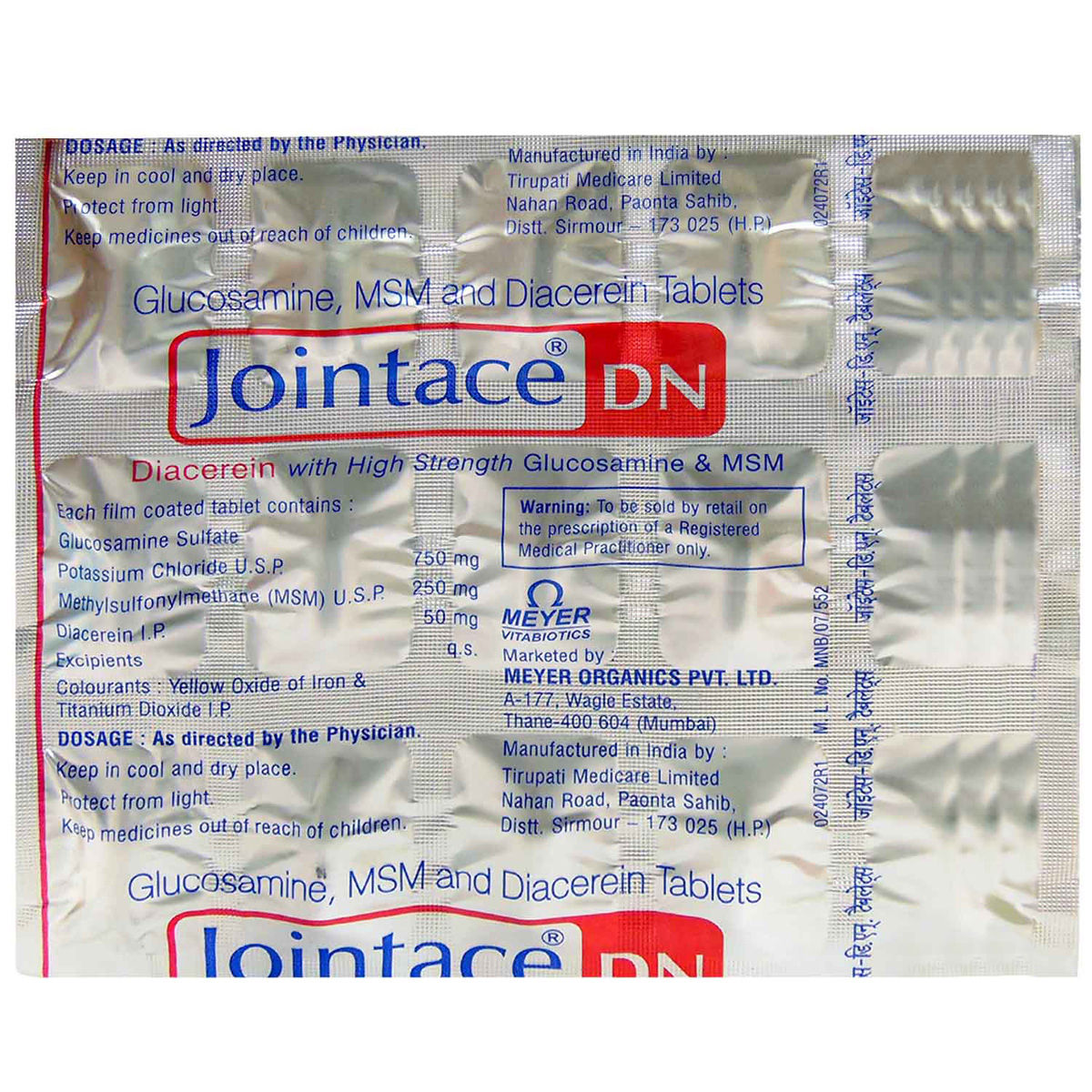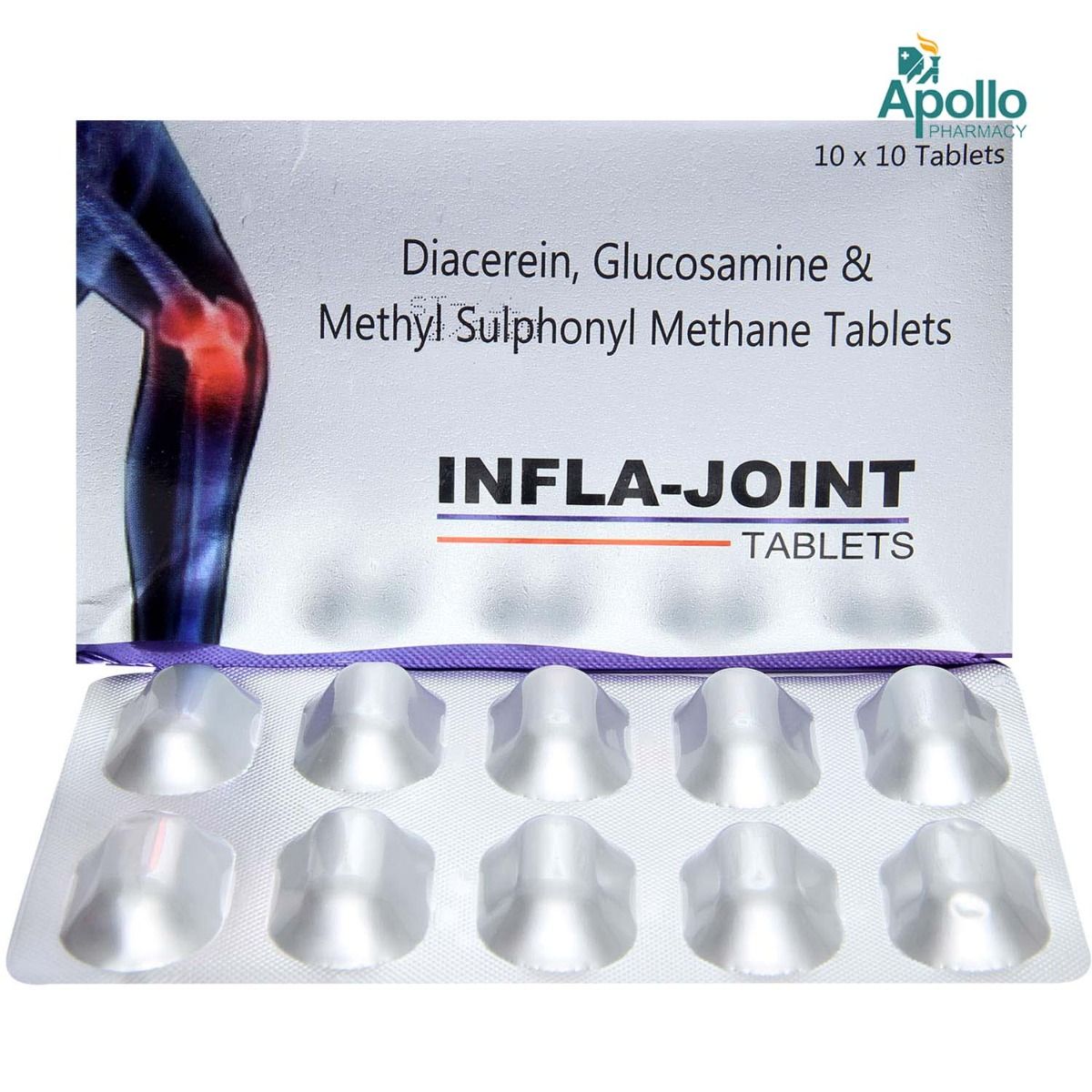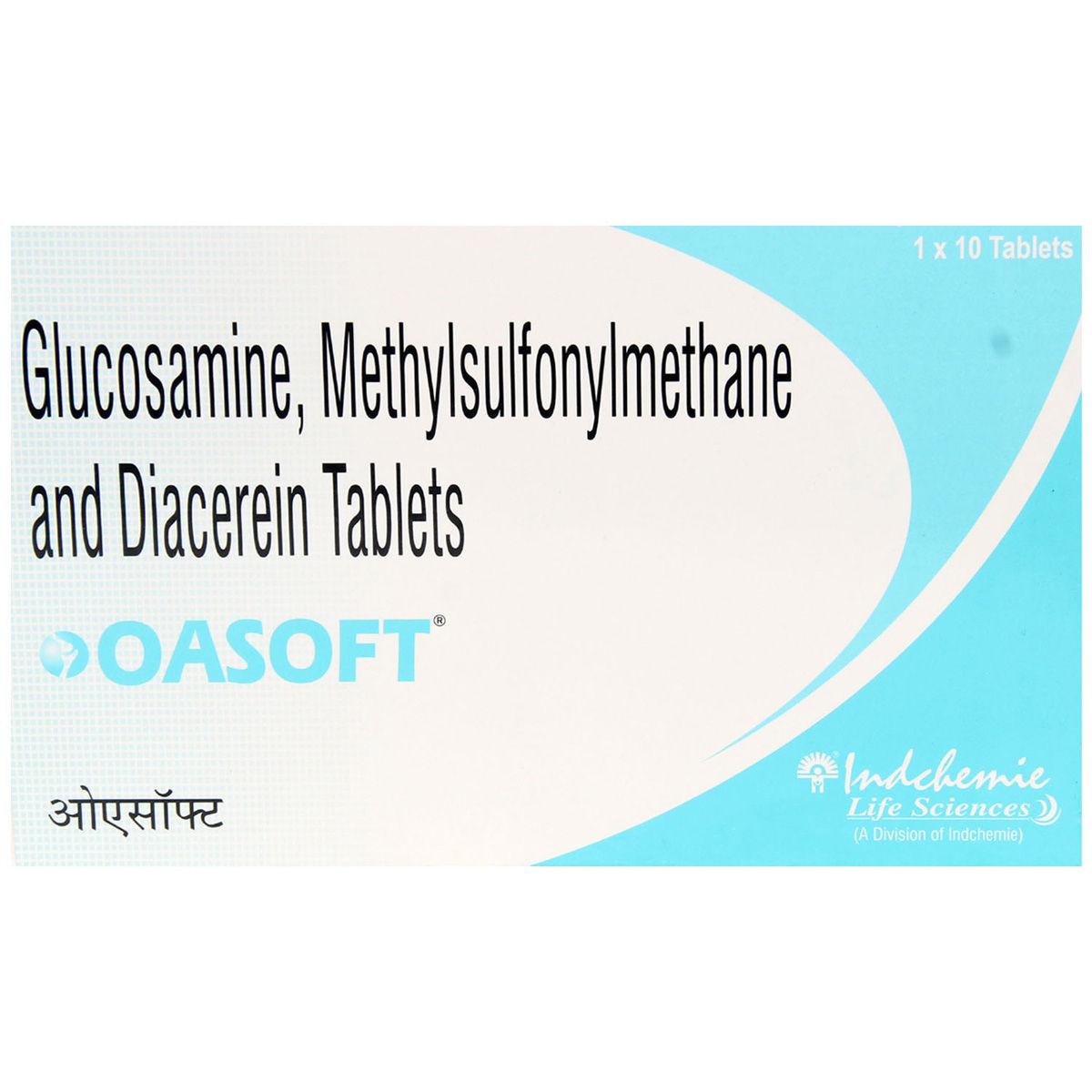Diacart G Tablet 10's
₹157.5*
MRP ₹175
10% off
₹148.75*
MRP ₹175
15% CB
₹26.25 cashback(15%)
Free Delivery
With Circle membership
(Inclusive of all Taxes)
This offer price is valid on orders above ₹800. Apply coupon PHARMA10/PHARMA18 (excluding restricted items)
Know Your Delivery Time
Provide Delivery Location

Available Offers
 Prescription drug
Prescription drugWhats That

Secure Payment

India's Most Trusted Pharmacy

Genuine Products
Manufacturer/Marketer :
Consume Type :
Return Policy :
Expires on or after :
About Diacart G Tablet
Diacart G Tablet belongs to the group of medicines called anti-inflammatory agents used to treat and relieve symptoms of osteoarthritis. Osteoarthritis is a degenerative joint disease in which the two ends of the joints come together due to the breakdown of a protective covering called cartilage
Diacart G Tablet is a combination of three drugs: Glucosamine (anti-inflammatory & anti-rheumatoid agents), methyl sulfonyl methane (nutritional supplement) and diacerein (anti-inflammatory). Diacart G Tablet works by helping in the build-up of cartilage. Cartilage is the connective tissue located on the bones near the joints. This build-up of cartilage helps in joint repair.
In some cases, you may experience certain common side-effects such as headache, diarrhoea, nausea, vomiting, wind, indigestion, abdominal pain, and constipation. Most of these side-effects do not require medical attention and will resolve gradually over time. However, you are advised to talk to your doctor if you experience these side-effects persistently.
Consult your doctor if you are pregnant or breastfeeding. Diacart G Tablet may cause drowsiness and dizziness, so drive only if you are alert. Diacart G Tablet should not be given to children as safety and efficacy have not been established. Avoid consuming alcohol along with Diacart G Tablet as it could lead to increased drowsiness and dizziness. Keep your doctor informed about your health condition and medicines to rule out any side-effects.
Uses of Diacart G Tablet
Directions for Use
Medicinal Benefits
Diacart G Tablet belongs to the group of medicines called anti-inflammatory agents. It is a combination of three drugs: Glucosamine (anti-inflammatory & anti-rheumatoid agents), methyl sulfonyl methane (nutritional supplement), and diacerein (anti-inflammatory). Diacart G Tablet is used to treat and relieve symptoms of osteoarthritis. Diacart G Tablet works by helping in the build-up of cartilage, a connective tissue located on the bones near the joints. This build-up of cartilage helps in joint repair.
How Diacart G Tablet Works
Storage
Side Effects of Diacart G Tablet
- Headache
- Diarrhoea
- Nausea
- Vomiting
- Wind
- Indigestion
- Abdominal pain
- Constipation
What if I have taken an overdose of Diacart G Tablet
Drug Warnings
Do not take Diacart G Tablet if you are allergic to any of its contents. Inform your doctor if you have/had heart problems, high cholesterol, diabetes, asthma, intestinal perforations, inflammatory bowel disease, liver and kidney problems. Consult your doctor if you are pregnant or breastfeeding. Diacart G Tablet may cause drowsiness and dizziness, so drive only if you are alert. Diacart G Tablet should not be given to children as safety has not been established. Avoid consuming alcohol along with Diacart G Tablet as it could lead to increased drowsiness.
Diet & Lifestyle Advise
Physical activity helps in strengthening muscles and relieves joint stiffness. Gentle activities like 20-30minutes of walking or swimming would be helpful.
Performing yoga may also help in improving joint flexibility and pain management.
Maintain a healthy weight by performing regular low-strain exercises and eating healthy food.
Get adequate sleep as resting the muscles can help in reducing inflammation and swelling.
De-stress yourself by meditating, reading books, taking a warm bubble bath or listening to soothing music.
Acupuncture, massage and physical therapy may also be helpful.
Eat food rich in antioxidants such as berries, spinach, kidney beans, dark chocolate, etc.
Foods containing flavonoids help in reducing inflammation. These include soy, berries, broccoli, grapes and green tea.
Avoid smoking and alcohol consumption.
Habit Forming
Therapeutic Class
Diacart G Tablet Substitute

Jointace DN Tablet 15's
₹25.20per tabletOrcerin GM Tablet 15's
₹23.58per tabletCartigen DN Tablet 10's
₹22.95per tabletInfla-Joint Tablet 10's
₹22.50per tabletRufix Forte Tablet 10's
₹31.50per tablet
Product Substitutes
Alcohol
Unsafe
You are recommended to avoid alcohol consumption while taking Diacart G Tablet . Alcohol intake, along with Diacart G Tablet , may cause increased drowsiness and drowsiness.
Pregnancy
Caution
Consult your doctor if you are pregnant; your doctor will prescribe you Diacart G Tablet only if the benefits outweigh the risks.
Breast Feeding
Caution
Please consult your doctor if you are having any concerns regarding this, your doctor will decide whether Diacart G Tablet can be given to breastfeeding mothers or not.
Driving
Caution
Diacart G Tablet may cause drowsiness and dizziness, do not drive or operate heavy machinery if you feel dizzy.
Liver
Caution
Please consult your doctor if you have a liver impairment or any concerns regarding this.
Kidney
Caution
Please consult your doctor if you have kidney impairment or any concerns regarding this.
Children
Unsafe
Diacart G Tablet should not be used by children, as the efficacy and safety have not been established.
FAQs
Country of origin
Manufacturer/Marketer address
Disclaimer
Author Details
We provide you with authentic, trustworthy and relevant information
Reference
- https://www.hpra.ie/img/uploaded/swedocuments/2171814.PA1521_003_002.cb4ba0a2-1887-4c40-afe6-e19cea656342.000001750mg%20PIL%20.160824.pdf
- https://data.health.gov.il/drugs/alonim/Diatrim_dr_1462364199647.pdf
- https://www.drugs.com/npp/methylsulfonylmethane-msm.html
- https://www.drugs.com/mtm/glucosamine.html

























